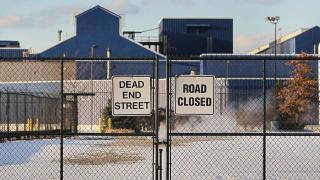Too Big to Fail?

Image: ABC
Originally published in The Globe and Mail Report on Business Magazine:
Newt Gingrich is back and doing what he’s done so often: igniting controversy. The architect of the Republican congressional revolution of the 1990s has created a firestorm by proposing a U.S. federal law that would allow states to go bankrupt. At present, only cities can do that, and it’s been rare. But the debate escalated in January and February, as dozens of states and cities said they would have to make brutal spending cuts to slash massive budget deficits. The crisis is already so advanced that star Wall Street analyst Meredith Whitney told 60 Minutes that she expects 50 cities to declare bankruptcy in 2011.
Gingrich’s plan is basically a free-market solution to deficits-the bond market will exercise the discipline that politicians cannot. Manhattan Institute scholar Nicole Gelinas explained the logic in a Boston Globe op-ed piece in January: “If bondholders worry that states won’t repay their debt, then they’ll jack up interest rates, or just stop lending money.” That’s how the market punishes underperforming companies. And legal bankruptcy, or even the threat of it, is often a powerful tool used by executives or regulators to force unions, management and other stakeholders to get real-either moderate your demands, or we’ll close the doors and sell off everything for whatever we can get.
Not surprisingly, U.S. tax reformers and proponents of limited government like Gingrich’s idea. It gives Washington another option for troubled states besides bailouts. The feds could just say “No.” The states could then squeeze public-sector unions. Given a choice between taking their lumps at the negotiating table or possibly having their contracts swept away in bankruptcy, sane union leaders would likely take the first one.
Opponents of Gingrich’s plan are vitriolic-“stupid,” “horrid” and “disaster” are typical responses. You’d expect that from unions under siege. But the proposal could also backfire on Washington by rattling already wobbly markets for municipal and state bonds, and pushing local and state political problems upstream into federal courts.
Then there’s the question of what happens after governments hit the wall. Unlike bankrupt companies, states and cities can’t simply be shut down and auctioned off. Someone will still have to provide some services. And as Gelinas noted, the spectre of bankruptcy may not result in the deep spending cuts that Gingrich and his crowd would like to see. “If you’re a bondholder, you often prefer tax increases to spending cuts,” Gelinas said.
Bankruptcy also wouldn’t eliminate the states’ biggest financial obligations by far: unfunded pension liabilities. Reuters Money & Politics columnist James Pethokoukis says that states face a total unfunded pension shortfall-the value of future obligations already incurred minus the current value of investment assets-of $3.2 trillion (U.S.). That makes the $250 billion in budget deficits forecast for the next two years look like a blip.
Canadians should pay close attention, because fiscal problems are swelling here, too. The federal budget deficit totalled $56 billion in the 2009-’10 fiscal year. The Harper government has vowed to eliminate that by 2015-’16. But Parliamentary Budget Officer Kevin Page says that a $10-billion deficit will likely remain. “We do not have sustainable fiscal structure,” he said, ominously. Ottawa also has a shortfall of $208 billion in its pension plans for federal employees, according to a recent C.D. Howe Institute paper.
Entire countries have gone bust and repudiated debts in the past, of course. But the fundamental problem with Gingrich’s idea in a democracy is that it’s asking the market to do a job the electorate should be doing: punishing politicians who spend too much money.
So why do politicians keep overspending? Often it’s a timing issue-spending decisions are made long before bills come due, or by politicians who don’t have to implement them. We have a great example of this in Vancouver, where I live. The B.C. Teachers’ Federation has a contract with the provincial Ministry of Education that calls for improved wages and benefits for this school year, yet the ministry failed to increase the provincial education budget enough to cover it. The Vancouver School Board had to work with the collective agreement it had been handed. The board’s solution: cut programs and school days.
Which politicians, if any, will Vancouver voters choose to punish? The trouble with the electorate, of course, is that our personal finances are as bad as those of governments. A recent Vanier Institute of the Family study noted that the average Canadian family’s debt-to-income ratio has soared to 150% over the past 20 years, while the savings rate has plummeted. We’ve all been borrowing and spending irresponsibly for a long time. No wonder it’s so hard to stop politicians from doing the same thing.
